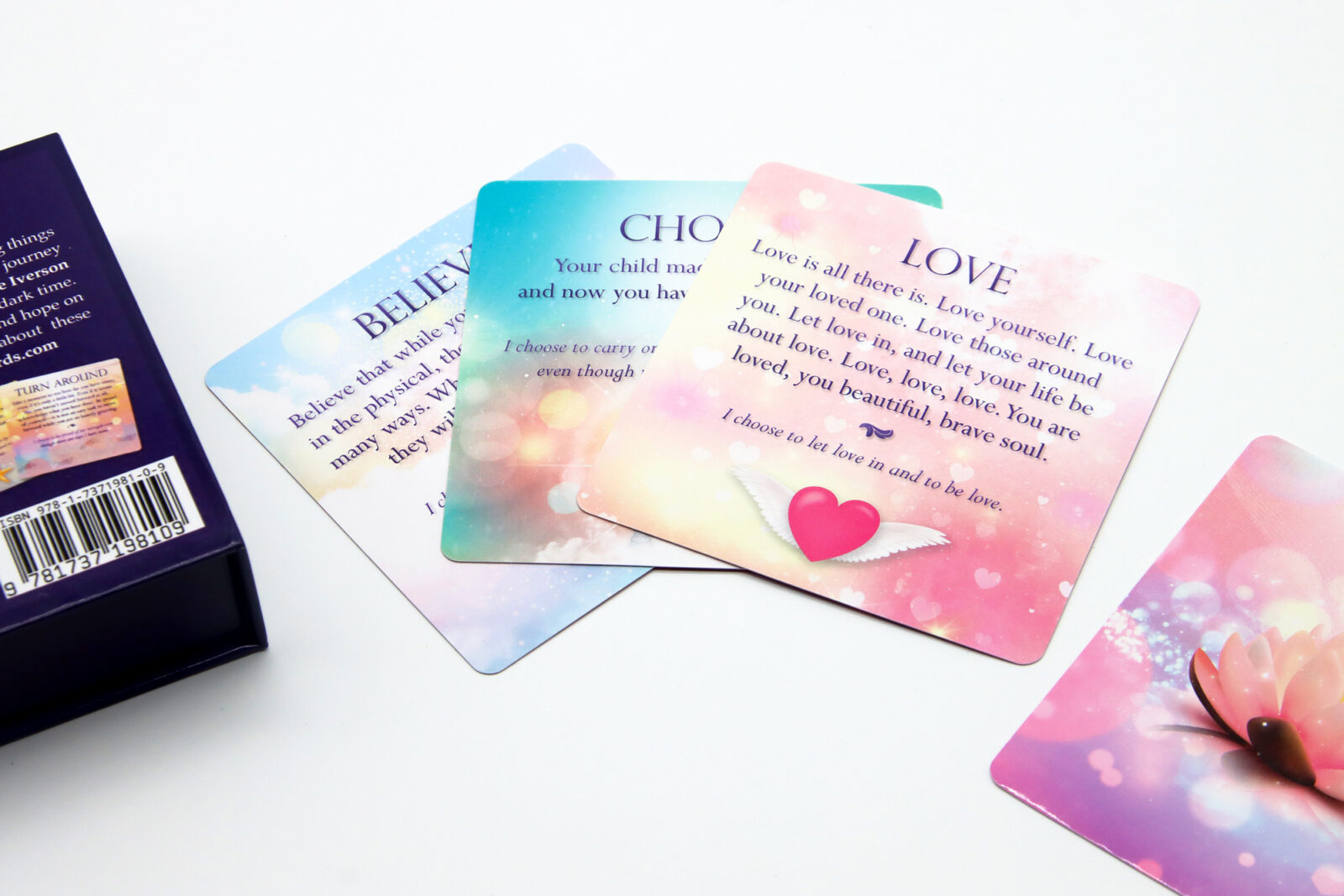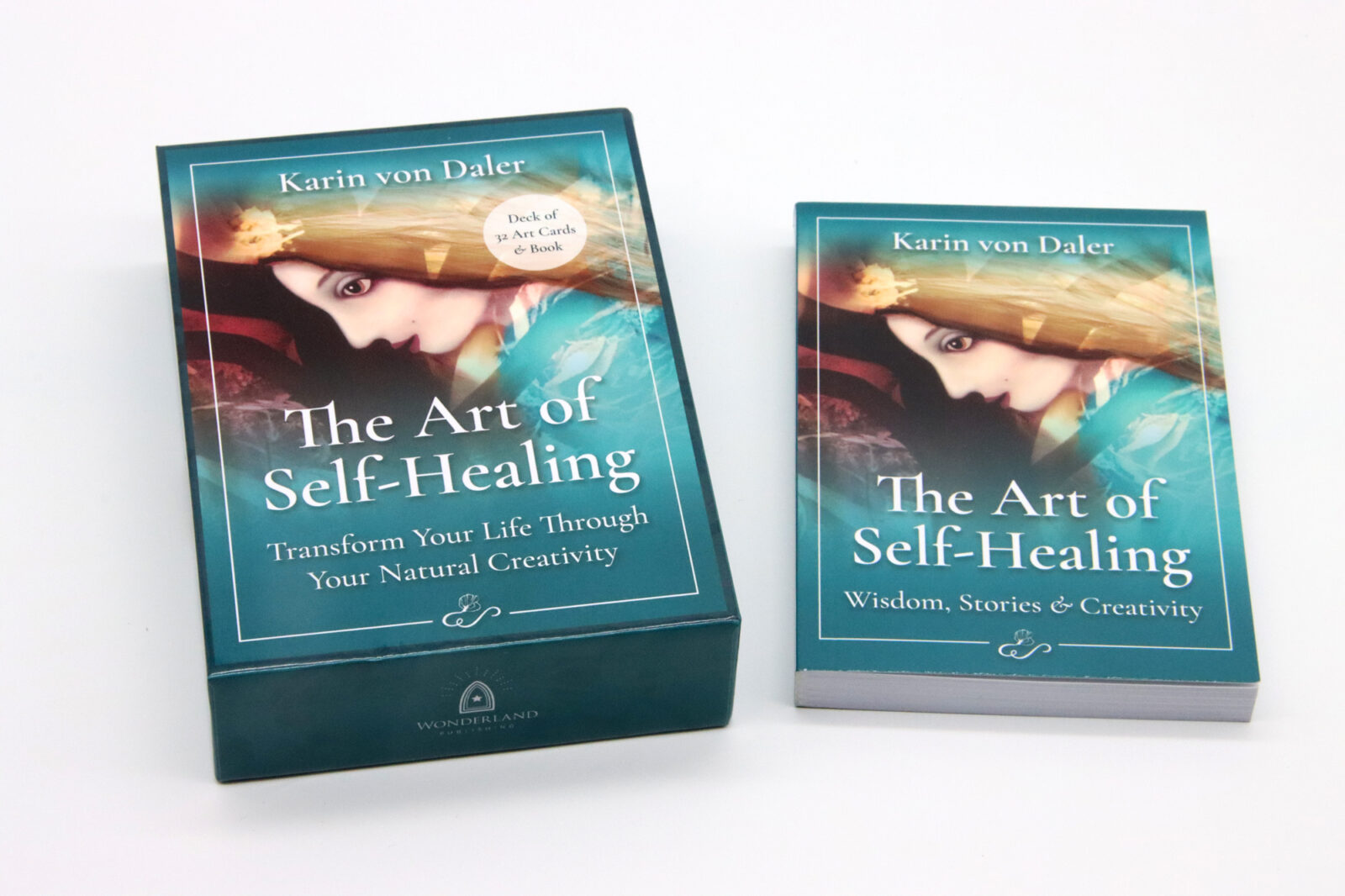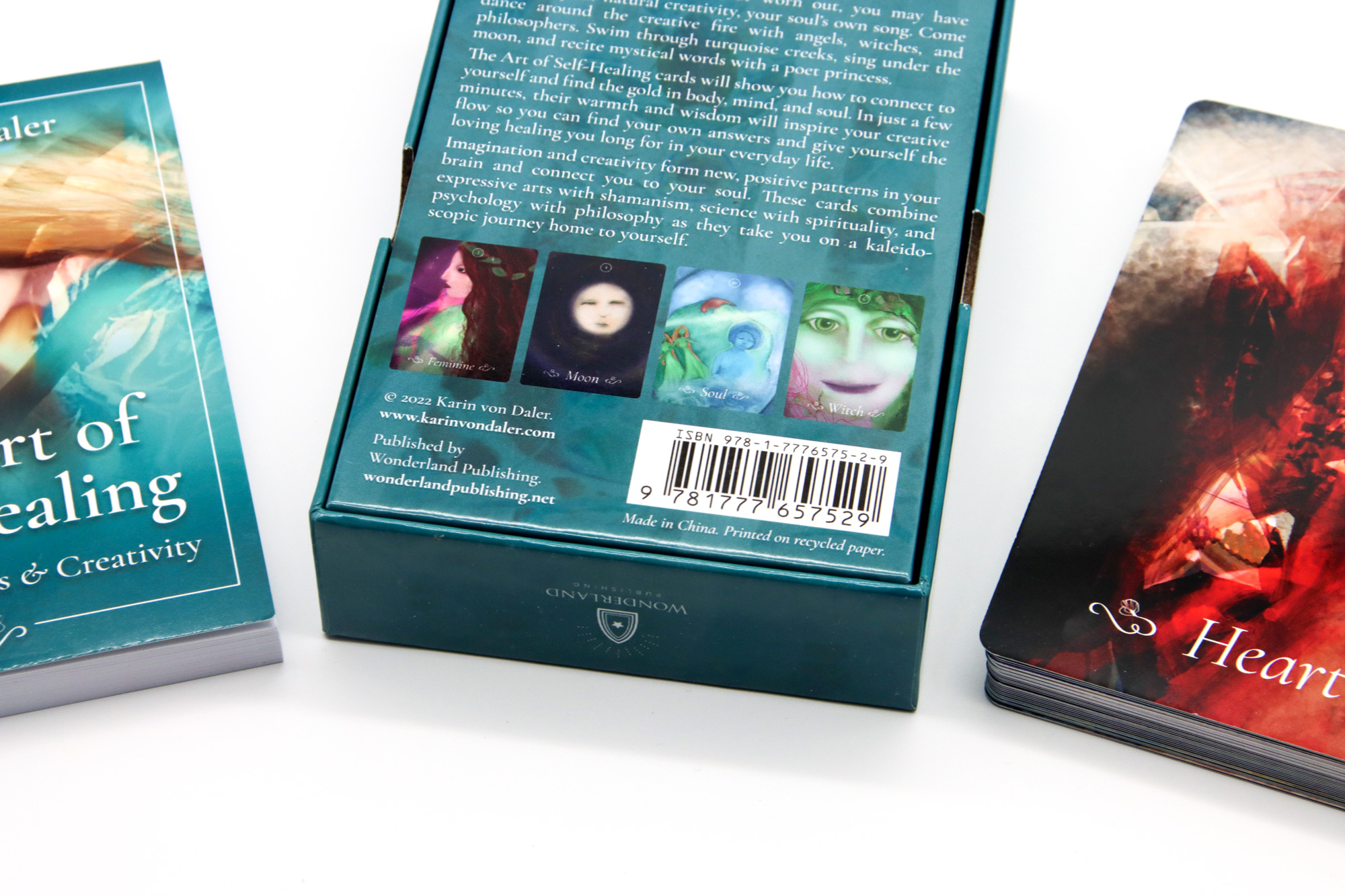If you’re planning on selling your oracle cards in retail stores, there’s one important thing your deck needs to have: You must display a barcode somewhere on your packaging—otherwise, wholesale distributors as well as online retailers like Amazon will typically not agree to carry your deck.
There are different types of barcodes you can use for different kinds of products. For oracle card decks, an ISBN number is often the best choice, which is the same type of barcode you’d use to publish a book. Since many bookstores like to sell oracle, tarot, and affirmation cards, publishing your deck with an ISBN number can make it easier for you to reach retailers who might be interested in selling your product for you. Also, oracle card decks often include a guidebook, so an ISBN number simply makes the most sense for those kinds of decks.
If you’re wondering how to get an ISBN number for your oracle card deck, here are some tips to get you started:
Does Your Oracle Card Deck Qualify for an ISBN Number?
First of all, it’s important to make sure that your deck meets all the requirements so you can publish it with an ISBN number. In most countries, you’ll have to publish your deck with a guidebook so you can get an ISBN barcode. (You’re basically getting the ISBN for the book and publishing it with a card deck.) Your book may also have to include a minimum number of pages so it qualifies for an ISBN. In some countries, the rules aren’t quite as strict. For example, in the United States, it’s possible to publish cards with an ISBN even if they don’t come with a book. To find out what the rules are for your country, contact your national ISBN agency.

3 Ways to Publish Your Oracle Deck With an ISBN Number
Once you’ve confirmed that you can legally publish your deck with an ISBN, here are three ways you can get your number:
1. Self-Publishing Your Oracle Card Deck
Your first option is to register as a publisher in your country of residence and self-publish your deck under your own business name. This is a great choice if you want to have a maximum amount of control over your publishing process—and if you don’t mind doing the required paperwork. Opening your own publishing house can also be a good option if you know that you’re going to publish a series of decks and/or books and you want an easy way to quickly purchase new ISBN numbers whenever you need them.

2. Working With a Traditional Publisher
If you’re creating a deck that you think has the potential to reach a large audience worldwide and starting your own publishing venture doesn’t feel like the ideal path for you, another option you may want to look into is getting your deck published by a traditional publishing house. The advantage of working with an established publisher is that they’ll take care of the entire publishing process for you—including designing, editing, and producing your deck, distributing it to an existing network of wholesaler partners, and yes: supplying the ISBN number for your deck.
However, there are also a few downsides to publishing your deck through a traditional publishing house: First of all, finding a publisher who is willing to publish your deck can be a tedious and time-consuming process with no guarantee of success. Also, you won’t have as much control over the creative process itself. For example, you may not have the final say on the the exact design of the deck, or your content may be edited quite substantially to match the publisher’s guidelines. Finally, your publisher will get to keep most of the profits from your sales while you’ll typically receive about 10–15% in royalties (although this can still be profitable if you land a #1 international bestseller).
3. Hybrid Publishing
If you’re looking for the best of both worlds, a hybrid publishing solution may be the perfect choice for you. Hybrid publishing allows you to keep the freedom of self-publishing your deck while also providing you with the high level of support you’d expect from a traditional publisher. (And often, the support you’ll receive will be much more personal and tailored to your specific needs.)
A hybrid publisher can walk you through the entire publishing process step by step, design and edit your deck with or for you, help you find the perfect printer for your deck and manage the production process for you, and provide you with the guidance and resources you’ll need to successfully launch your deck into the world. Hybrid publishers will often give you the option to publish your deck under your own company name if you choose to do so, or you may be able to get your ISBN number from the publisher.

Want More Support to Make Your Dream of Your Oracle Card Deck a Reality?
Create your deck with the Design & Publish Your Own Oracle Deck course, or learn more about our done-for-you services!


Hey, you say in this post that it’s possible to publish decks with an ISBN even if they don’t come with a book, but I’m curious what your source is? Im trying to figure out if I can get an ISBN for my affirmation card deck (no book), but the US ISBN FAQ says tarot cards are ineligible for ISBN
https://isbn.org/faqs_isbn_eligibility
Many of my clients have published card decks without books in the US. This is common practice among large traditional publishers as well. Certain types of cards are eligible for ISBN numbers in the US. For example, you could choose the “flash card” format. This may not be the official rule, but in practical reality, this is how many authors and publishers do it every day. The rules are stricter in other countries that don’t allow ISBN numbers for any kind of card format unless a book is included.